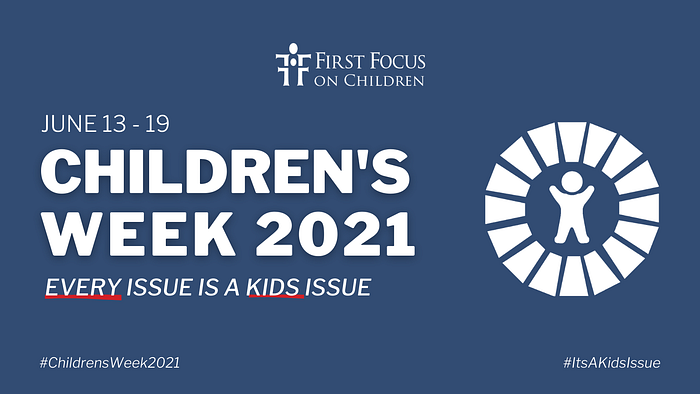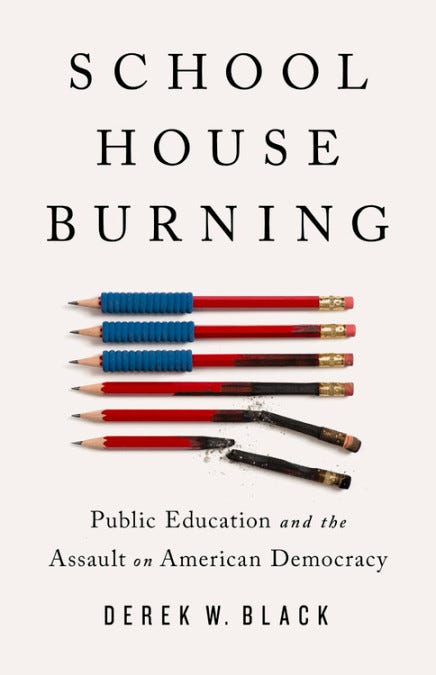It’s time to restore American leadership, and a place to start is by investing in our nation’s future: our children.
This means investing in their education and growth, protecting their health and safety, protecting them from economic hardship, poverty, and hunger, and helping them develop their God-given potential.
To achieve these goals, our nation’s leadership should ensure that the best interests of children govern all policies that impact children and youth. In a 2020 election eve poll by Lake Research Partners, American voters agree by an overwhelming 81–13 percent margin.

This week is Children’s Week (June 13–19) in the United States and child advocates across the country are raising attention to key policy issues facing America’s children and youth in Congress.

Whether the issue is health care, poverty, nutrition, safety, immigration, housing, immigration, the environment, infrastructure, technology, foreign assistance, or the global COVID pandemic, these policy areas of importance to children and youth. As part of Children’s Week, First Focus Campaign for Children has put together a Children’s Agenda for the 117th Congress: Every Issue is a Children’s Issue, which urges policymakers to support and champion the comprehensive list of policy concerns of importance to children and youth.
Children advocates are working together to raise attention to the full array of issues of importance to our nation’s children and how they interact with one another to impact child well-being. As an example, reducing child poverty in America will reduce child abuse and neglect, hunger, and homelessness and improve child health and educational outcomes.
Children need adults to understand that every issue is a kids’ issue. Furthermore, they need their concerns and voices heard, listened to, and acted upon rather than ignored or dismissed. When we fail to lean in and listen to our kids, we fail them.
As examples, in every major child abuse scandal over the past several decades, including those related to the Catholic Church, the Boy Scouts, the U.S. women’s Olympic gymnastics team, Penn State’s Jerry Sandusky, the U.S. Olympic water polo team, etc., adults were told repeatedly about the abuse that children were being subjected to. Despite the numerous pleas for help by children, adults either dismissed, ignored, or actively attempted to cover up the abuse rather than protect our kids.
USA Olympic gymnastics medalist Ali Raisman wrote in the New York Times:
Abuse goes way beyond the moment, often haunting survivors for the rest of their lives, making it difficult to trust and impacting their relationships. . . If over these many years, just one adult listened and had the courage and character to act, this tragedy could have been avoided.
The fact is that violence, abuse, injustice, and discrimination against children in families, schools, prisons, and institutions can best be eliminated if children are enabled and encouraged to tell their stories and be heard by people with the authority to take action and protect them. Far too often, institutions have repeatedly failed children (e.g., from the scandals involving child and sexual abuse by public, private, nonprofit, and religious institutions noted above to the policies of family separation and the caging of children by the federal government in the last Administration). Rather than putting the protection and well-being of children first, institutions often tragically choose to silence the voices of children in order to cover up the abuse and protect the abusers.

Policymakers also fail children through inaction, ignorance, ideological purity, caving to special interests, failing to recognize that children have fundamental human rights too, or even just abject cruelty.
Fortunately, there are positive models and champions for children. As Derek Black, author of School House Burning: Public Education and the Assault on American Democracy points out, our nation’s founding fathers called for the creation of a strong public education system in this country to protect our democracy and to fulfill our nation’s promise to future generations.

Black quotes President John Adams making the case that the “education of ‘every rank and class of people, down to the lowest and the poorest’ had ‘to be the care of the public’ and ‘maintained at the public expense.’ Its importance required that ‘no expense. . .would be too extravagant.’”
In a Special Message to Congress in 1909, President Teddy Roosevelt called for the creation of a Children’s Bureau to:
…investigate and report upon all matters pertaining to the welfare of children and child life, and shall especially investigate the questions of infant mortality, the birth rate, physical degeneracy, orphanage, juvenile delinquency and juvenile courts, desertion and illegitimacy, dangerous occupations, accidents and diseases of children of the working classes, employment…, and such other facts as have a bearing upon the health, efficiency, character, and training of children.
During the Great Depression, President Franklin Delano Roosevelt reaffirmed a focus on children. In 1935, he called for the creation of the New Deal, and in it, fully recognize that every issue is a children’s issue, and he called for significant investments in children. FDR said:
It must not for a moment be forgotten that the core of any social plan must be the child. Every proposition we make must adhere to this core. . . [W]e cannot too strongly recommend that the Federal Government again recognize its obligation to participate in a Nation-wide program saving the children from the forces of attrition and decay which the depression turned upon them above all others.
Unfortunately, the needs and best interests of children are not often at the forefront of presidential attention and congressional action. Since children cannot vote, cannot employ lobbyists, do not run a Political Action Committee (PAC), and are denied the right to vote, children are often treated as an afterthought in the halls of the White House and Congress.
Despite having some terrific champions and defenders in Congress in recent years, inattention and inaction is — far too often — the norm. The federal budget committed a record low 7.48 percent of the federal budget to children.

Even worse, in 2019 and 2020, the First Focus Campaign for Children’s Legislation Scorecard could not identify a single major vote in the United States Senate that would improve the lives of children. Fatherly’s Lizzy Francis reported:
The inaction is astounding. In the meantime, kids will be harmed.
Children Need Positive Action…Now
As Nobel Prize-winning poet Gabriela Mistral once said:
Many things we need can wait. The child cannot. Now is the time his or her bones are formed, his or her mind developed. To them, we cannot say tomorrow, their name is today.
Just over a month from now, Americans will be cheering on our Olympic champions and proudly chant “U-S-A!” and wave our flags, as our athletes demonstrate excellence on Tokyo’s courts, fields, mats, tracks, and pools. The United States is, once again, favored to take the most Olympic medals this summer.
We are proud of our young Olympic athletes and the excellence they have achieved — often despite incredible challenges and adversity in their lives and personal stories.
Let’s ensure that we do what it takes to help all our young people overcome such challenges and adversity.
Fortunately, a “window of opportunity” has opened to allow us the ability to improve and expand the Child Tax Credit and provide greater support to the families of over 65 million children in this country. As estimated by the Center on Poverty and Social Policy at Columbia University, President Biden’s proposed American Families Plan would cut child poverty by 47.4 percent relative to the projected poverty rates for 2022 if the American Families Plan were not enacted.

We must not let this moment pass without action. The kids are not alright. Every aspect of the lives of children were negatively impacted by the global COVID-19 pandemic and economic recession.
First, parents, teachers, pediatricians, child advocates, and youth must educate policymakers to understand that children have significant and unique needs and concerns that require child-focused solutions. There’s a reason we have pediatricians and early childhood teachers. Kids are not just little adults. They have distinct needs, which require care from professionals who understand the needs of growing children.
Second, parents, teachers, pediatricians, child advocates, and youth must demand that policymakers take action to help improve the lives and well-being of children. America should stand at the top of the list of industrialized nations in the health, education, and safety of its children — not at the bottom.
Unfortunately, even before the pandemic and recession, the kids were not doing well. In a report by UNICEF, our nation was well behind other wealthy nations on dozens of child well-being measures, including child poverty and child mortality. In that international comparison, the United States ranked just 36th out of 38 countries — behind counties like Romania, Estonia, Slovakia, Latvia, Greece, Poland, Lithuania, and Malta.
If our Olympic athletes can dominate the world on the medal stands, we can certainly do better than 36th in the world for the rest of our young people.
We must demand that no child in this country should ever go without health care or food. It’s well past time for us to dramatically reduce child poverty, make the tax system fair for children and families, improve our nation’s schools, expand high-quality child care opportunities, and help families avoid having their homes foreclosed and reverse the growing homelessness crisis.
We can make great strides in improving the lives of children in this manner if we insist that Congress pass the American Families Plan. If you are in supporting the call for improvements to the tax credits that benefit children and families, we urge you to join a sign-on letter to Congress pushing for its passage.
In addition, we urge parents, pediatricians, teachers, and child advocates to consider joining a growing movement of volunteers to be an “Ambassador for Children” and be a voice and advocate for children.
For our kids, their name is today and their time is now.

